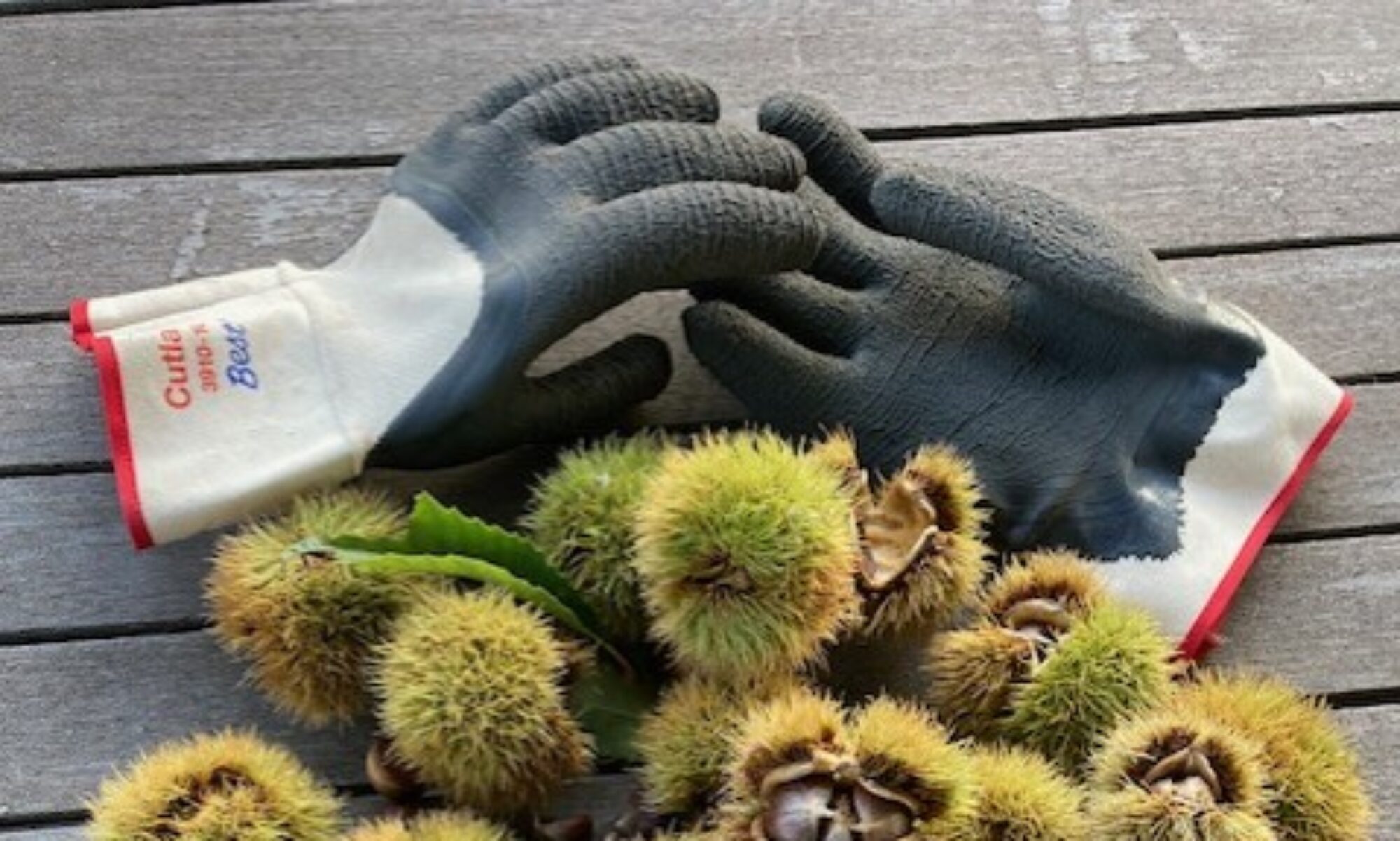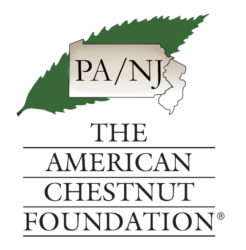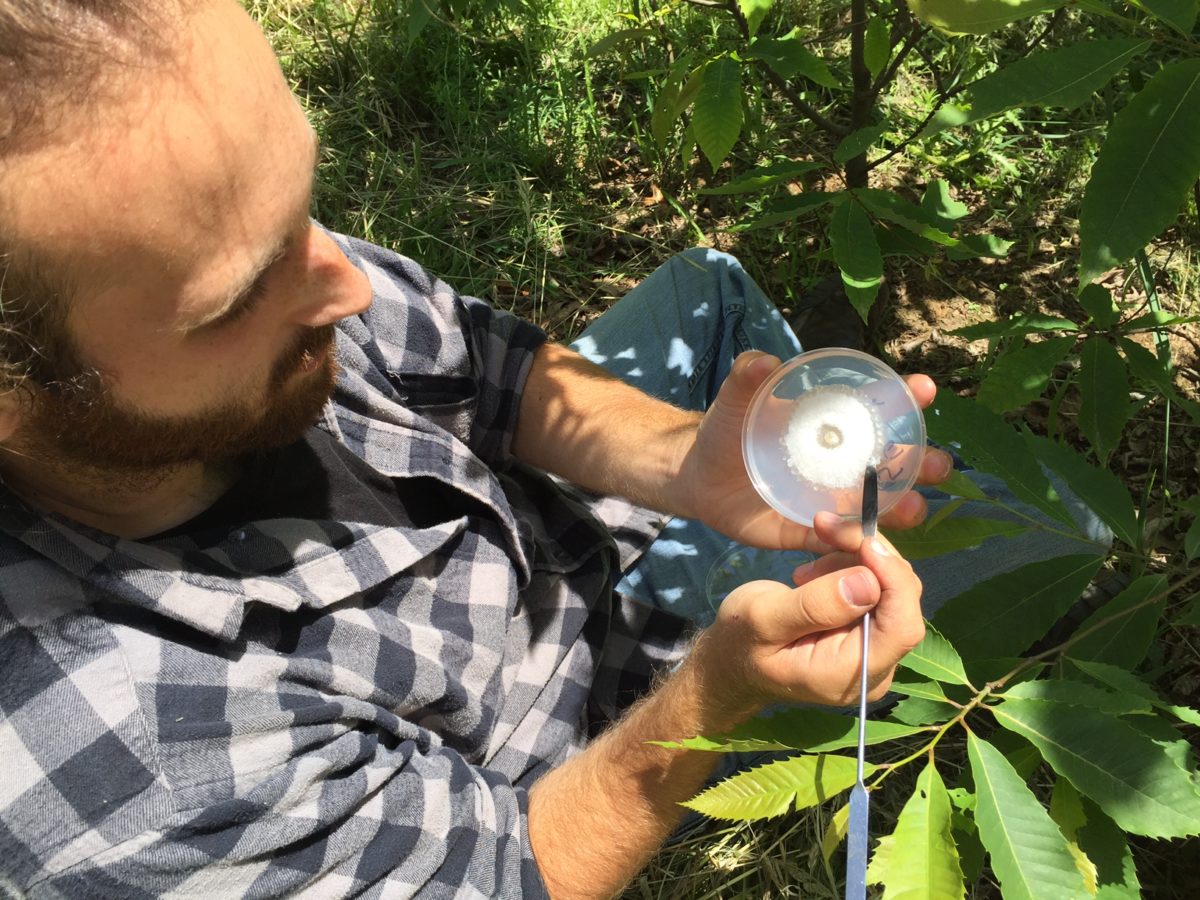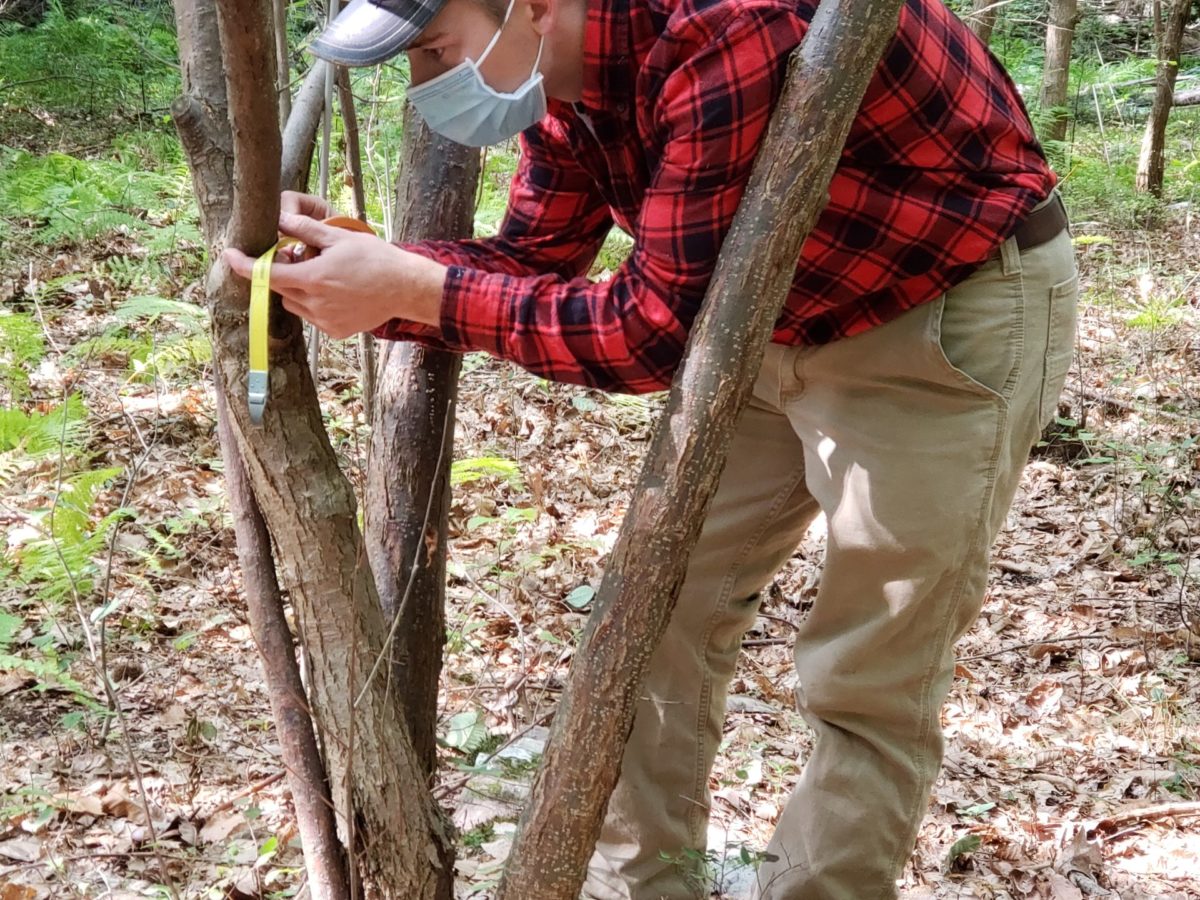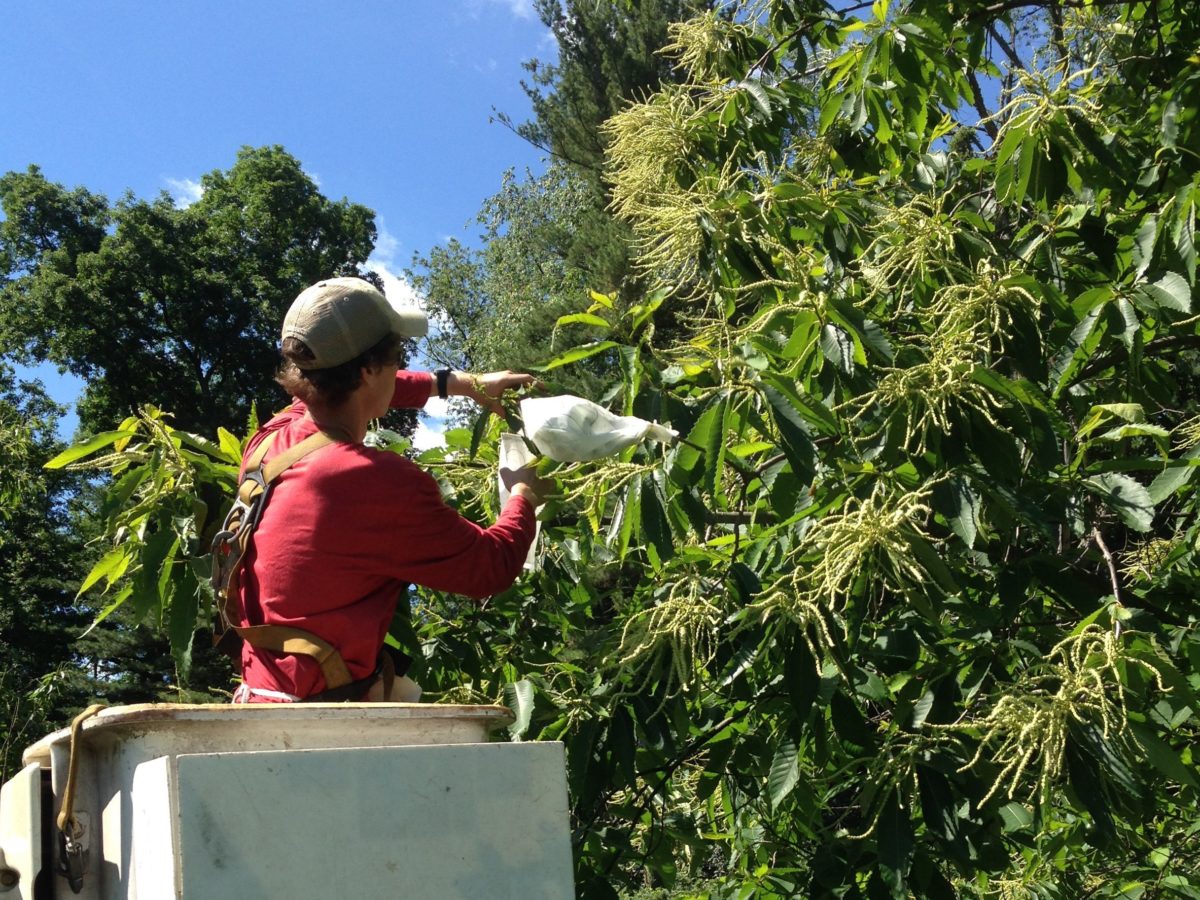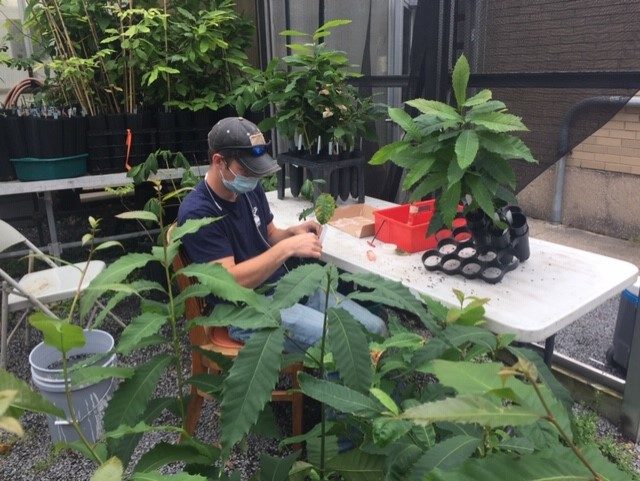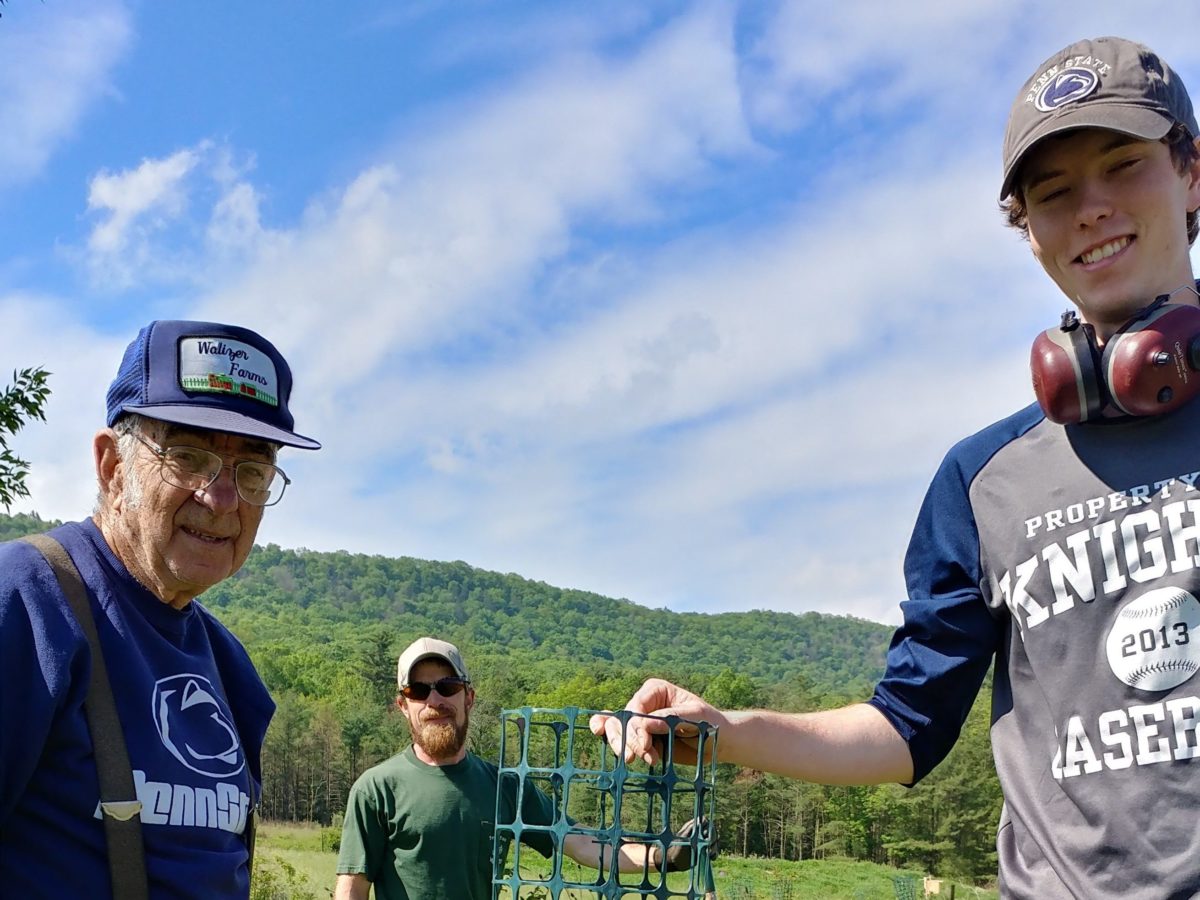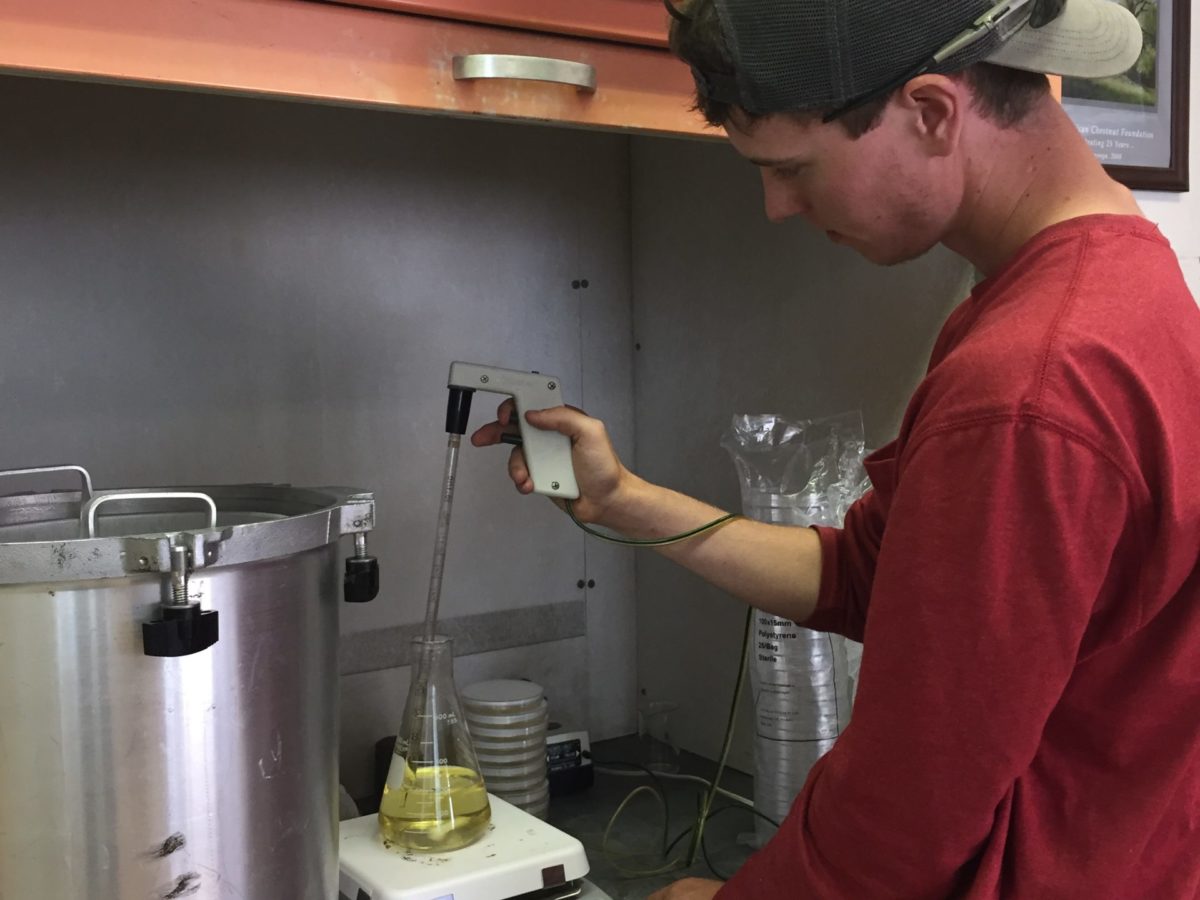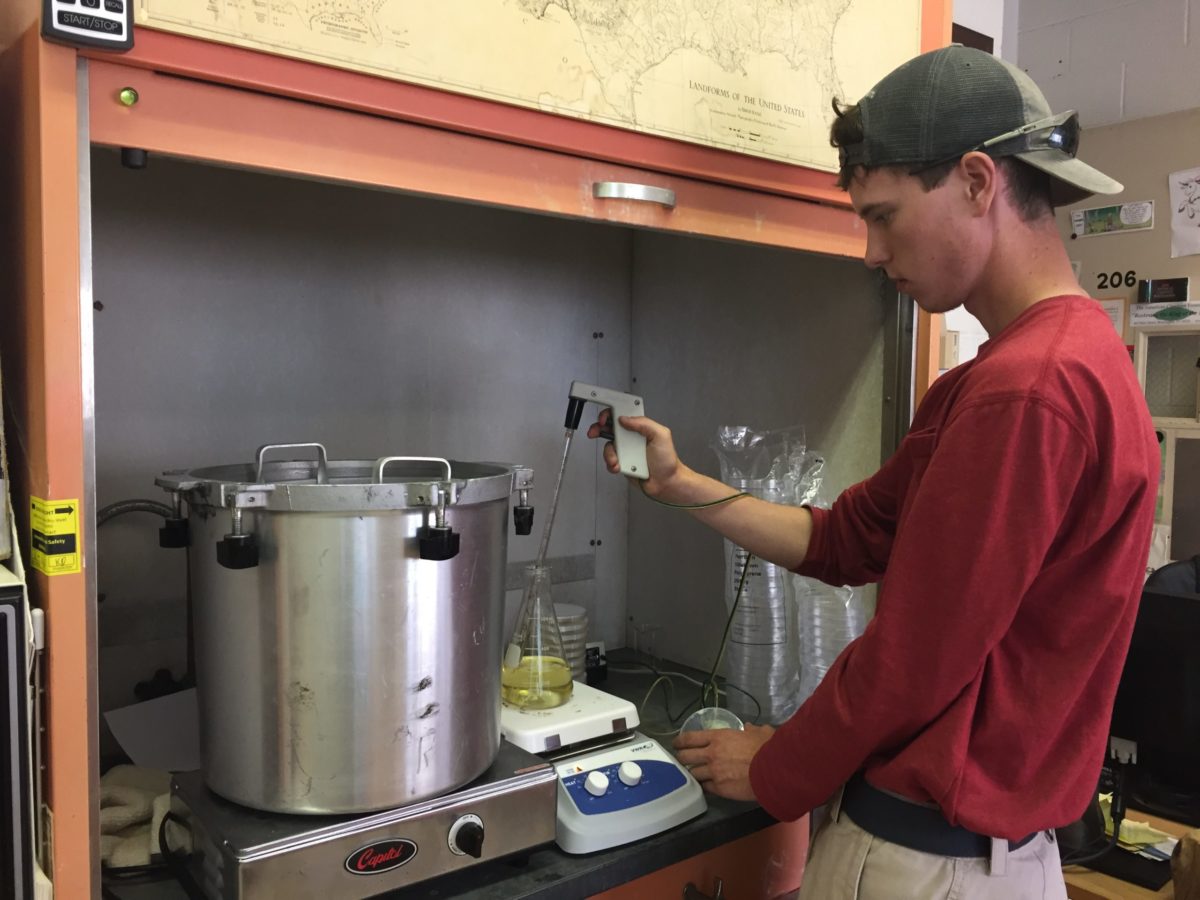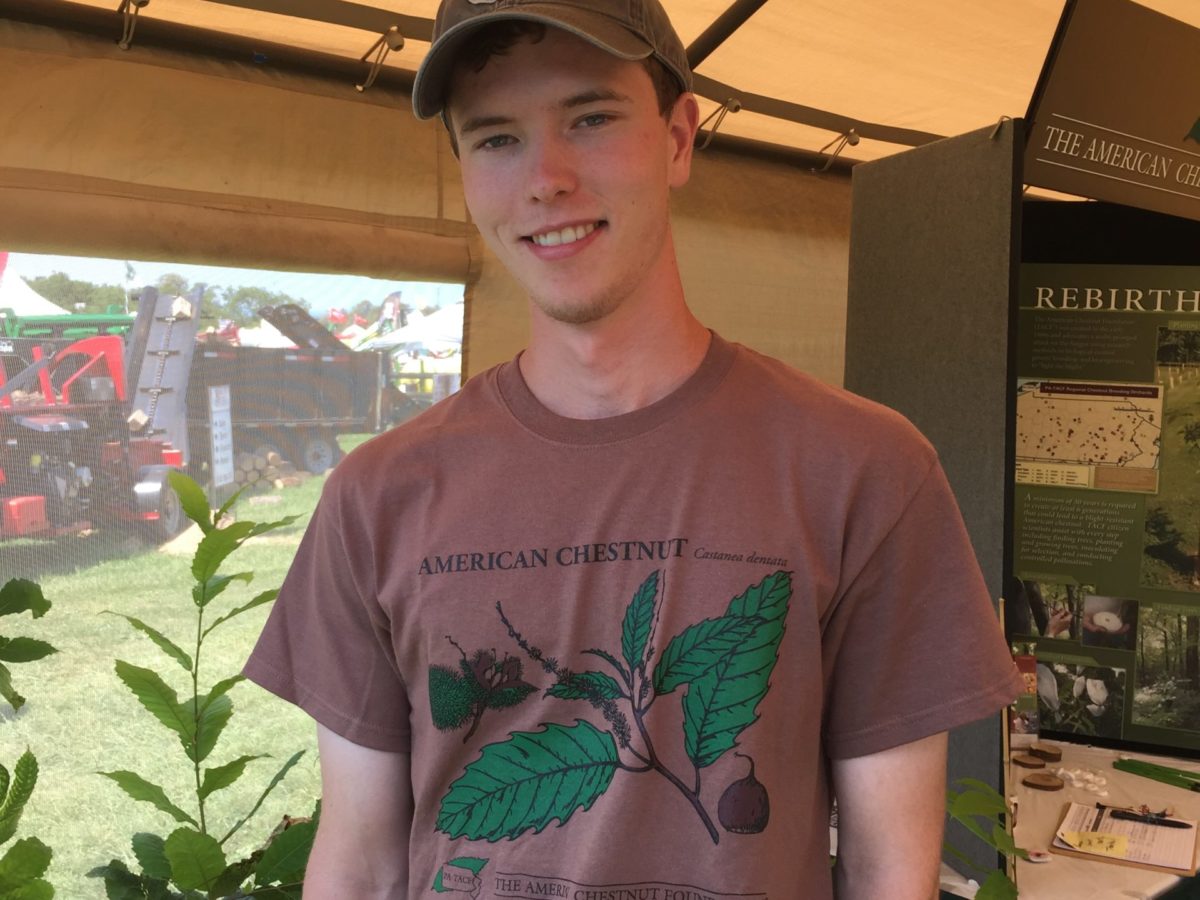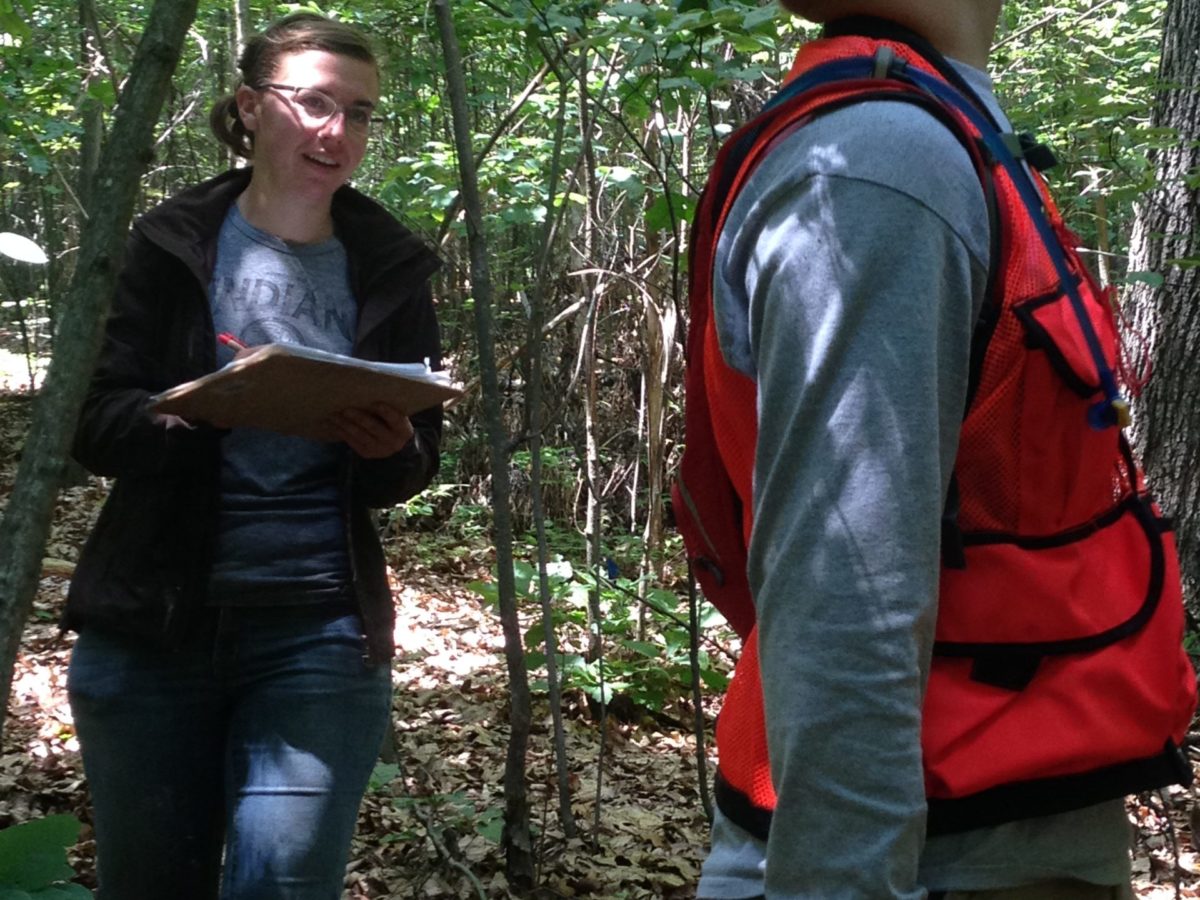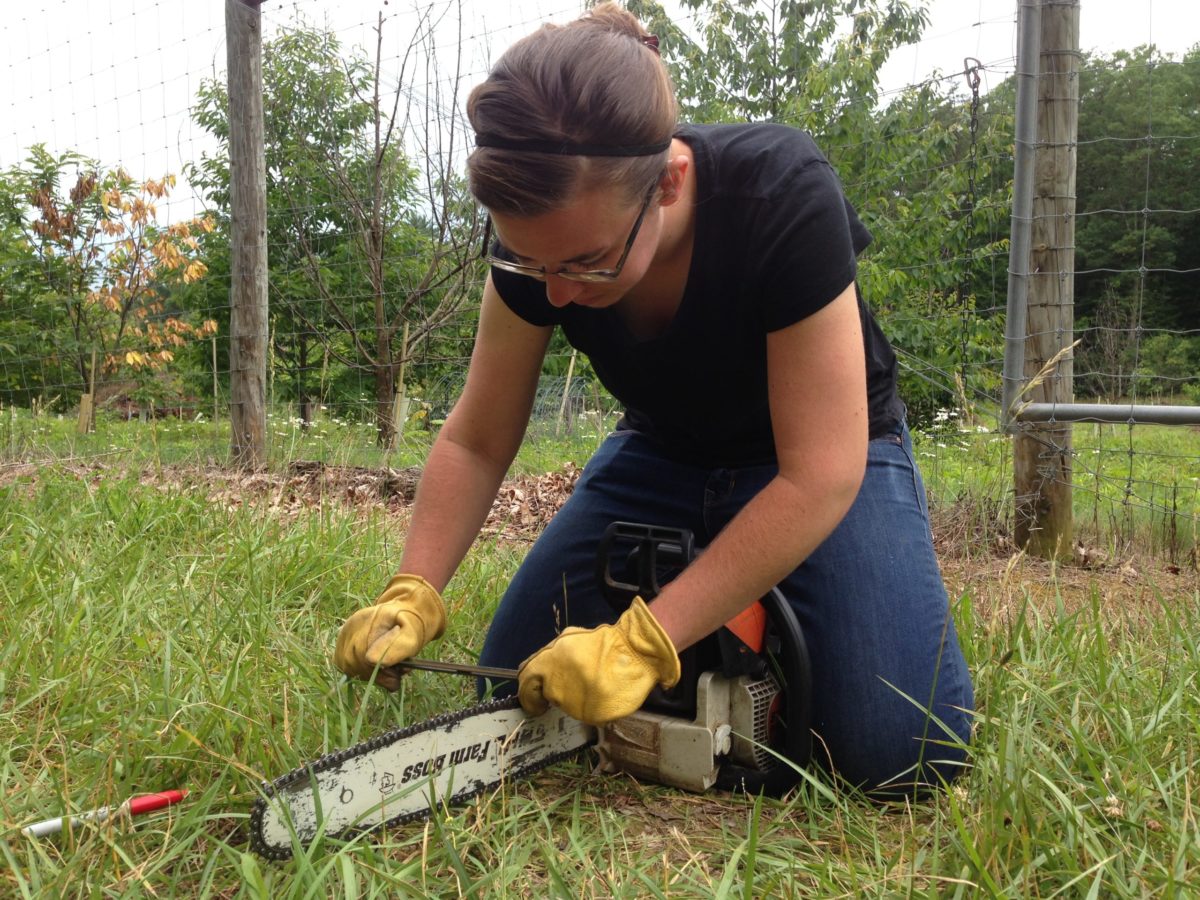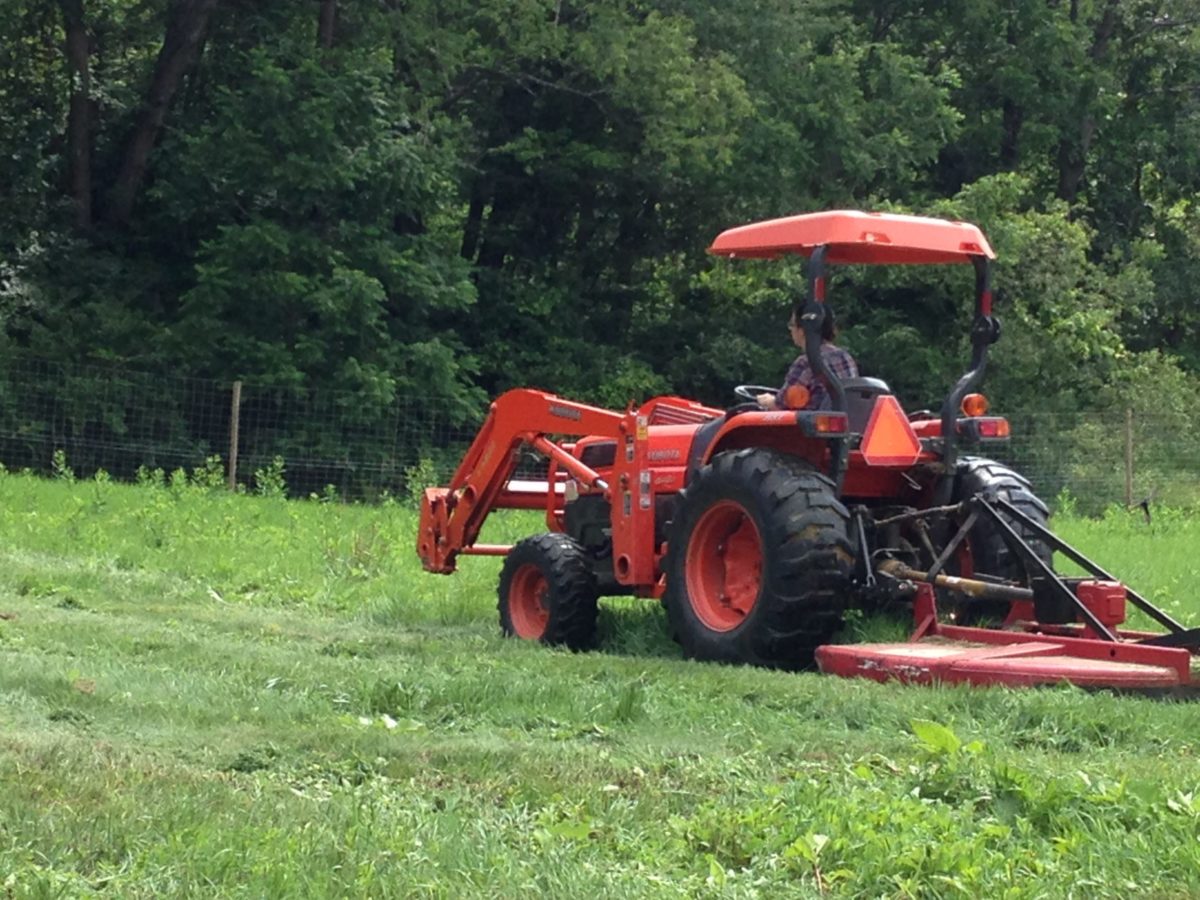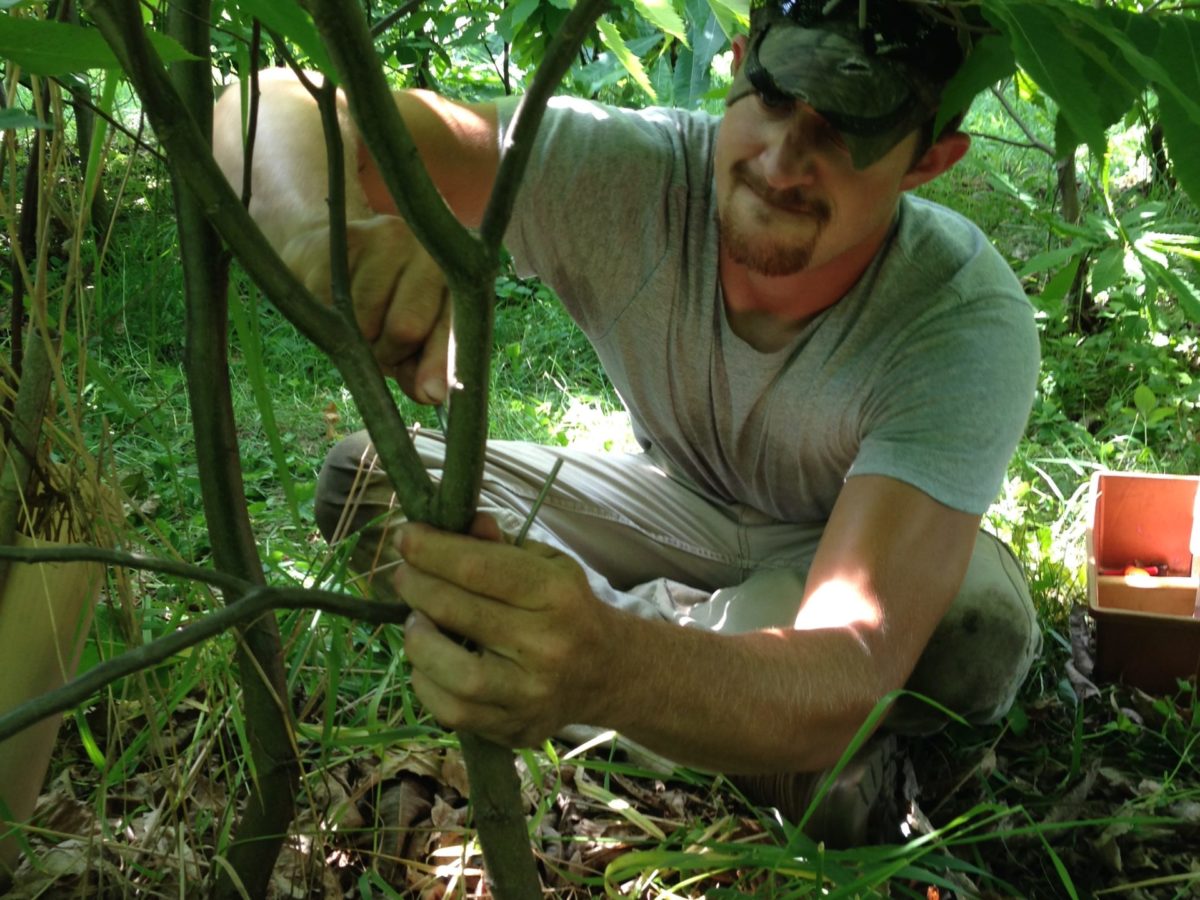PA/NJ Chapter Internships at Penn State University
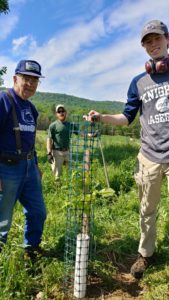 Summer interns play a vital role in our restoration research. In an effort to restore blight-resistant and locally adapted American chestnut (Castanea dentata) trees, Penn State University works with The American Chestnut Foundation (TACF) to capture as much of the original genetic diversity of the tree as possible. Volunteers have put in extensive effort to locate, identify, hybridize, and collect seeds from wild-type native trees across Pennsylvania and beyond. They have also planted thousands of seeds collected from open-pollinated trees in gene pool repository orchards. Over 80,000 trees have been planted as part of the effort to restore the species.
Summer interns play a vital role in our restoration research. In an effort to restore blight-resistant and locally adapted American chestnut (Castanea dentata) trees, Penn State University works with The American Chestnut Foundation (TACF) to capture as much of the original genetic diversity of the tree as possible. Volunteers have put in extensive effort to locate, identify, hybridize, and collect seeds from wild-type native trees across Pennsylvania and beyond. They have also planted thousands of seeds collected from open-pollinated trees in gene pool repository orchards. Over 80,000 trees have been planted as part of the effort to restore the species.
Sara Fitzsimmons, Director of Restoration for TACF started as a summer intern back in 2000. Since then, the PA/NJ Chapter of TACF has offered summer internships to students interested in getting hands-on work experience with applied science, particularly in regards to tree improvement, genetics, breeding, forest tree pathology, and silvicultural and horticultural techniques, especially as they apply to chestnuts.
We are proud of our Internship Alumni many of whom remain engaged in our effort to restore the American chestnut. See what they say about their experience.
 My internship at TACF was extremely important for my career development. As an engineer, I found that employers were often very intrigued by the inclusion of an environmental-based nonprofit in my work experience. I think the stories and experiences that came from my time at TACF really helped me stand out among my peers. Additionally, as a person deeply concerned with the plight of American chestnuts and ecology generally, interning gave me hands-on experience with the hard work needed to help our planet adapt to a changing world. It has profoundly impacted my worldview. — 2017 Intern: Connor McInerney, Test Engineer – CertainTeed LLC
My internship at TACF was extremely important for my career development. As an engineer, I found that employers were often very intrigued by the inclusion of an environmental-based nonprofit in my work experience. I think the stories and experiences that came from my time at TACF really helped me stand out among my peers. Additionally, as a person deeply concerned with the plight of American chestnuts and ecology generally, interning gave me hands-on experience with the hard work needed to help our planet adapt to a changing world. It has profoundly impacted my worldview. — 2017 Intern: Connor McInerney, Test Engineer – CertainTeed LLC
The work we did helped me get even more comfortable in conservation work and gave me way more hands-on and technical experience than I expected. All the skills from managing the greenhouse, working with volunteers, record keeping, and planting trees have been super valuable in my work after graduating and would be super valuable to anyone entering the conservation field. It’s a super cheesy thing to say, but I doubt a single thing I learned went to waste. It was also super fun to learn these skills while working with chestnuts – the history behind the American chestnut is fascinating not just as a historical record but also for its unique role in NE forests.–2016 Intern: Marlin Graham, Riparian Forest Buffer Specialist, PA DCNR Bureau of Forestry and Western Pennsylvania Conservancy
gave me way more hands-on and technical experience than I expected. All the skills from managing the greenhouse, working with volunteers, record keeping, and planting trees have been super valuable in my work after graduating and would be super valuable to anyone entering the conservation field. It’s a super cheesy thing to say, but I doubt a single thing I learned went to waste. It was also super fun to learn these skills while working with chestnuts – the history behind the American chestnut is fascinating not just as a historical record but also for its unique role in NE forests.–2016 Intern: Marlin Graham, Riparian Forest Buffer Specialist, PA DCNR Bureau of Forestry and Western Pennsylvania Conservancy
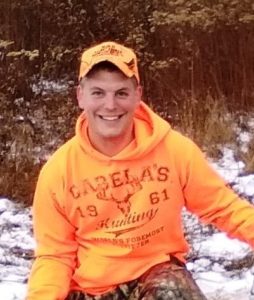 During my time working as an intern for Sara Fitzsimmons, I grew as a young forestry professional, seeing multiple sides of forest and orchard management. I had been involved in previous forestry internships, but this one was one of my favorites. Sara taught me different skills to communicate well with both staff and volunteers during daily activities. She showed me how to manage staff, while also being approachable. During my internship, I had the opportunity to work on both private and public land, giving me the freedom to problem solve and be challenged daily. Having this flexibility helped prepare me for my current job as a Forester for the Pennsylvania Game Commission. As a Forester, you tend to work alone most days while managing over 60,000+ acres of forest land. You need to be self-motived to complete your tasks and goals each day. I would recommend this internship to anyone looking to grow as a natural resource manager, who wants the freedom and flexibility to work in the field. — Intern 2011 Chad Barclay, Field Forester PA Game Commission
During my time working as an intern for Sara Fitzsimmons, I grew as a young forestry professional, seeing multiple sides of forest and orchard management. I had been involved in previous forestry internships, but this one was one of my favorites. Sara taught me different skills to communicate well with both staff and volunteers during daily activities. She showed me how to manage staff, while also being approachable. During my internship, I had the opportunity to work on both private and public land, giving me the freedom to problem solve and be challenged daily. Having this flexibility helped prepare me for my current job as a Forester for the Pennsylvania Game Commission. As a Forester, you tend to work alone most days while managing over 60,000+ acres of forest land. You need to be self-motived to complete your tasks and goals each day. I would recommend this internship to anyone looking to grow as a natural resource manager, who wants the freedom and flexibility to work in the field. — Intern 2011 Chad Barclay, Field Forester PA Game Commission
